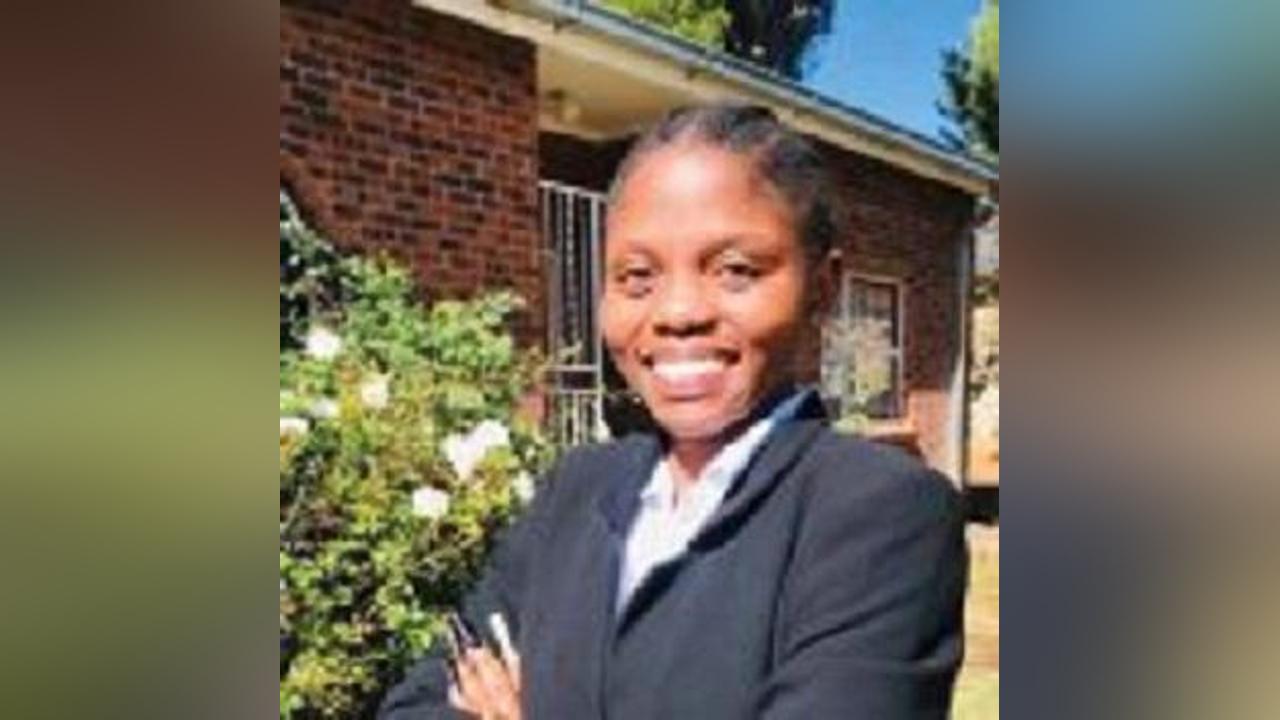Africa-Press – Lesotho. A 22-year-old woman from Keiting lost two children to malnutrition and claims she lacked the means to properly feed them. Now she is facing criminal charges for neglecting other minors under her care – one of many cases of child neglect and abuse blighting Lesotho.
The woman appeared in court charged with child negligence of her younger brother aged 16 and her three other children aged six, five and two. According to prosecutors, the woman unlawfully left the minors at night between January and June this year, subjecting them to physical and psychological risks.
thepost has decided not to publish the name of the woman to protect the identities of the children. She pleaded innocent but did not ask to be released on bail, saying she is too broke to even afford bail money.
The court remanded her to Tuesday this week. Speaking to thepost last week, she said she is heartbroken, lamenting that she faces imprisonment for not taking care of the children, yet she does not have the financial means to do so.
“My parents left me with two of my siblings aged 16 and seven. I am burdened, having to take care of so many children yet I am unemployed,” she said, tears rolling down her cheeks.
She disclosed that she buried her eight months old child who died of malnutrition two weeks ago, while her youngest with whom she went to prison with is also malnourished.
“Doctors even told me that she might never be able to walk. I will learn to accept everything that is coming my way because I do not have a choice.
Maybe prison is the solution I need to survive in this cruel world. But I am worried about these children and their survival as I will not be there for them anymore. All I ever wanted was for them to go to school,” she said.
She added, sobbing: “I am hopeful that God will see my tears and answer my prayers because I opened a file at the (Ministry of) Social Development but unfortunately, I never got the help I needed.
“If I had money, I would look for a lawyer to win the case and be able to live for these children who rely on me for survival. I want them to attend school. ” Another woman aged 29 from Ty appeared before court for neglecting her 13-year-old son.
The accused unlawfully left her son without providing for his basic needs such as food, clothes and guidance on separate occasions from 2021 to July 13, 2023 She was granted a M1 000 bail, which she managed to pay and surety of M10 000.
She must not interfere with state witnesses, hamper police investigations and should attend remand hearings and stand trial to finality as part of the bail conditions.
The two were charged with contravening section 44 (1) of the Child Protection and Welfare Act (CPWA). The cases are just a tip of the iceberg, according to authorities, who say many other cases go unreported in the district.
Section 44 (1) of the CPWA states that a person who abuses, neglects, abandons or exposes a child in a manner likely to cause the child physical, psychological or emotional injury commits an offence and is liable on conviction to a fine, imprisonment or both.
The Act further states that “a parent or guardian or other person legally obliged to maintain a child shall be deemed to have neglected the child in a manner likely to cause the child physical, psychological or emotional injury if he fails to provide adequate food, clothing, medical treatment, lodging, care, guidance and protection to the child.
The Act provides that “a child has a right to live with his parents and grow up in a caring and peaceful environment unless it is proved in court that living with his parents shall.
. lead to significant harm to the child”.
It also states that a child shall not be subjected to any cultural rites, customs or traditional practices that are likely to negatively affect the child’s life, health, welfare, dignity or physical, emotional, psychological, mental and intellectual development.
The same law states that the government should provide “special protection for a child deprived of family environment and ensure that appropriate alternative family care or institutional placement is available in such cases”.
The Act says a child is in need of care and protection if they have been or there is substantial risk that the child will be physically, psychologically or emotionally injured or sexually abused by the parent or guardian or a member of the extended family or any other person.
The Act provides that a police officer, the Department of Social Welfare, a chief or member of the community who is satisfied on reasonable grounds that a child is in need of care and protection may take the child and place him in a place of safety.
It is the role of the state, through its agencies, to ensure the supervision of the safety, well-being and development of any child placed in alternative care and the regular review of the appropriateness of the care arrangement provided.
Statistics from the Social Development Department show that 83 children were found neglected countrywide from April to August 2022. Leribe topped the list with 20 cases, followed by Qacha’s Nek with 17.
From January this year to date, 10 cases of negligence have been reported and three of the children were taken to care facilities, while others were placed with their relatives.
The District Child Welfare Officer in the Department of Social Development, Lerato Kopo, expressed concern over escalating cases of child neglect in the district.
She said they are mandated to protect children and when they come across such cases, they identify relatives and ask them to support the children. In instances where there are family members who are unavailable, the department places them with care facilities.
Kopo said vulnerable children or families can qualify for child grants aimed at assisting those in dire need of help. “However, some issues don’t require monetary support but psychosocial support hence we chip in to offer one in collaboration with our partners,” she said, adding “Unfortunately, some parents choose alcohol and dating over their children.
Being near Matatiele worsens the situation. ” Kopo said the existing CPWA helps them address the issue, although there is need for amendments to plug some loopholes.
“Both parties (police and social development) should fulfil their roles to strengthen child protection,” she said. Kopo said lack of resources, in particular vehicle shortages, poses a major challenge.
Sergeant ‘Mamatheko Bohloa, the Qacha’sNek Police Child and Gender Protection Unit (CGPU) Officer, who is also the local Human Trafficking Unit Focal Person, said they are overwhelmed with cases related to child ill-treatment by parents or guardians.
Just last week, about five women and two men appeared in court in connection to child abuse and neglect charges. “Children are supposed to be left under the care of an older person,” she said.
Bohloa said public sensitisation programmes have been helpful in raising awareness, but reaching remote places has been a challenge due to transport problems.
“We are trying to be proactive.
This has to be done regularly so that even those who witness neglect cases happening in their localities can report such cases to ensure the safety of children,” said Bohloa.
She acknowledged the different problems people encounter and warned that “addressing them shouldn’t be at the cost of children. ” “We need a temporary shelter for affected children so that they don’t have to return to the very same toxic environment when we are attending to their issues,” she said.
Currently, the perception is that the district is not doing enough to protect children, hence the need to strengthen efforts, said Bohloa, revealing a recent case of a 15-year-old child who slept at her place as they awaited help from the Social Development Department.
“She can’t afford to go back to the same place where she is deprived of a right to education and childhood as she babysits her aunt’s children,” said Bohloa.
Ntlotliseng Hlokase, a counsellor at Khanya Consultancy, defined child neglect as a failure by parents or guardians to carry out their responsibilities of providing basic needs such as food, clothes, shelter and support to children.
She said although factors contributing to the scourge differ, poverty, single parenting, cultural practices and unsupportive family systems are most common.
“Often it is tough to be a single parent, hence such parents struggle to meet all the basic needs leading to child neglect.
Some families are child-headed because once they lose their parents to death, relatives do not take the responsibility, while other parents are absent from their children’s lives yet they are still alive.
She said lack of self-esteem and inferiority complex, mental health illnesses such as stress and depression and personality or behavioural disorders are some of the common effects of child neglect.
“Some children even resort to violence as a coping mechanism because of neglect.
They blame themselves for being neglected as they may believe that they were neglected because they did something wrong or because they simply were not good enough to live up to their parents’ standards,” she said.
Hlokase said the presence of both parents in a child’s upbringing is vital to address this issue as parents can share responsibilities for the betterment of the child’s development and for them to reach their full potential.
She said parents should pay attention to the wellbeing of their children in all aspects – from physical, mental to emotional well-being for them to be able to notice even small changes.
“This will result in children being assured that they live in a safe space to share their views.
. if they are unable to voice their opinions within their homes, they are easy targets for human rights violations as they lack confidence,” she said.
https://www.thepost.co.ls/news/child-neglect-cases-on-the-rise/
For More News And Analysis About Lesotho Follow Africa-Press






